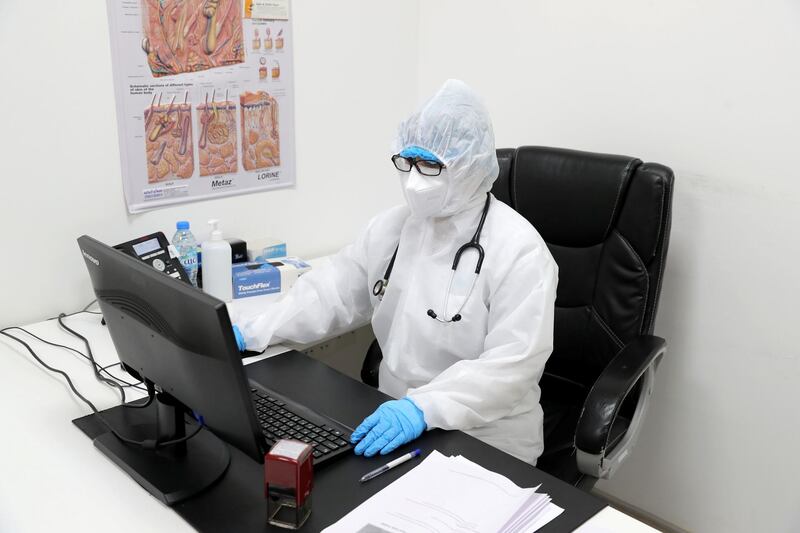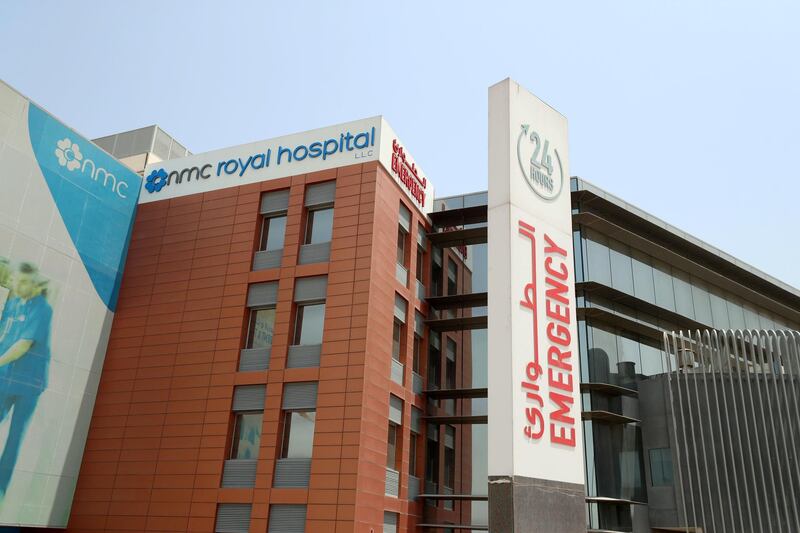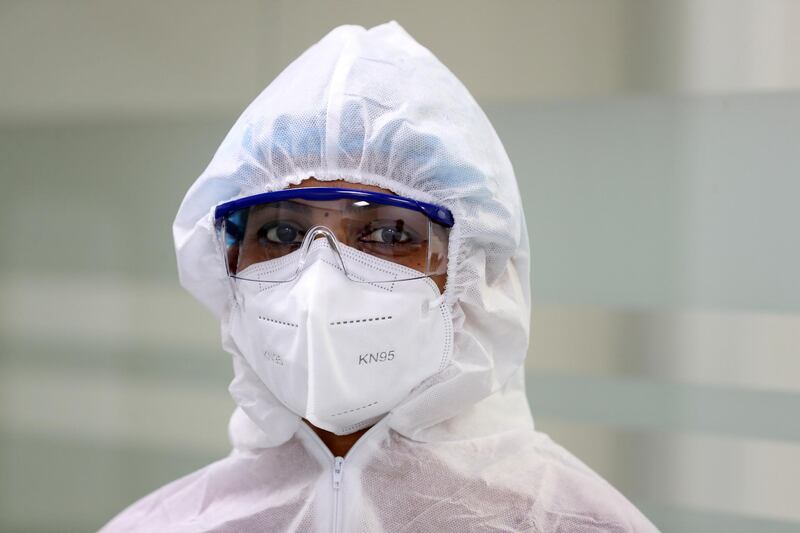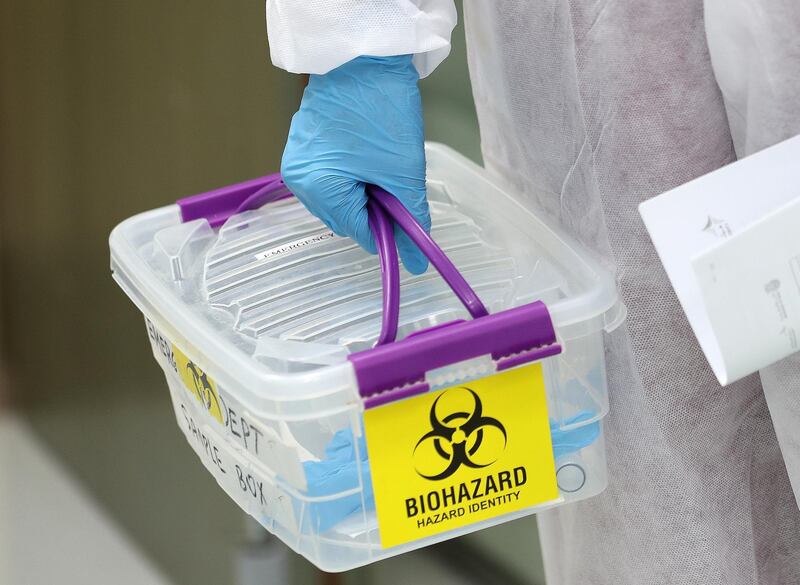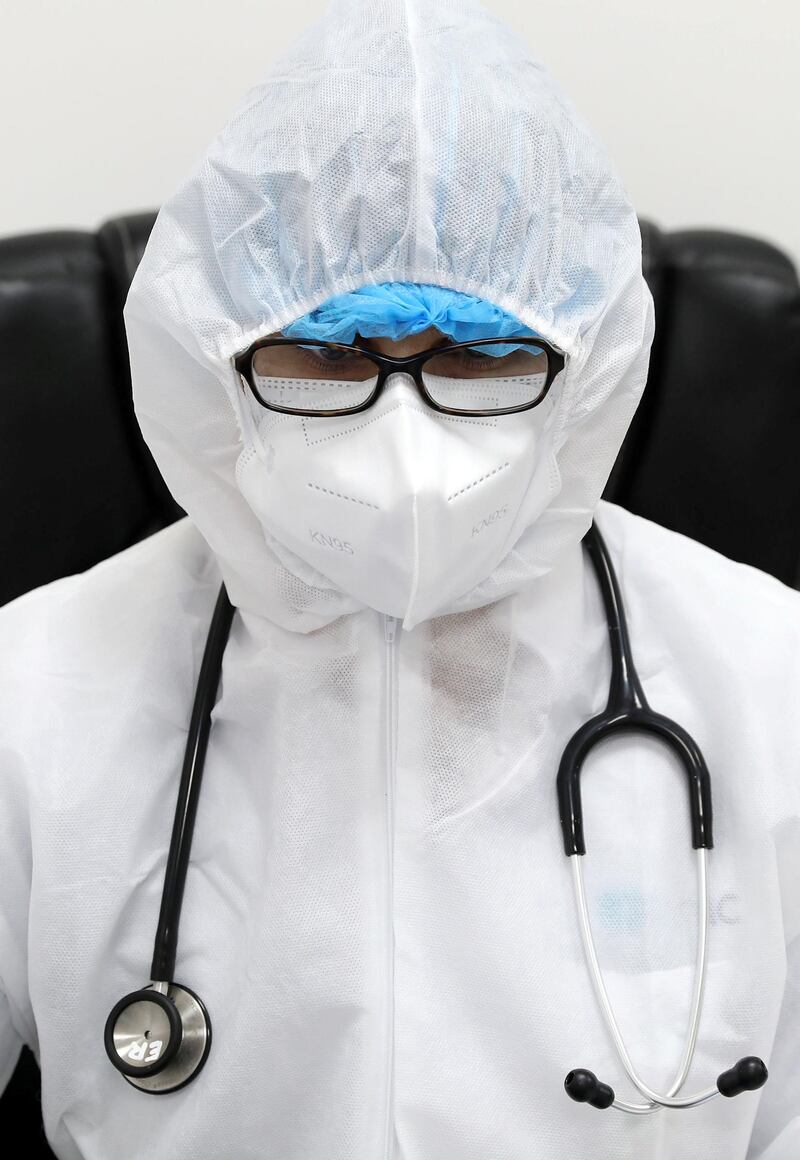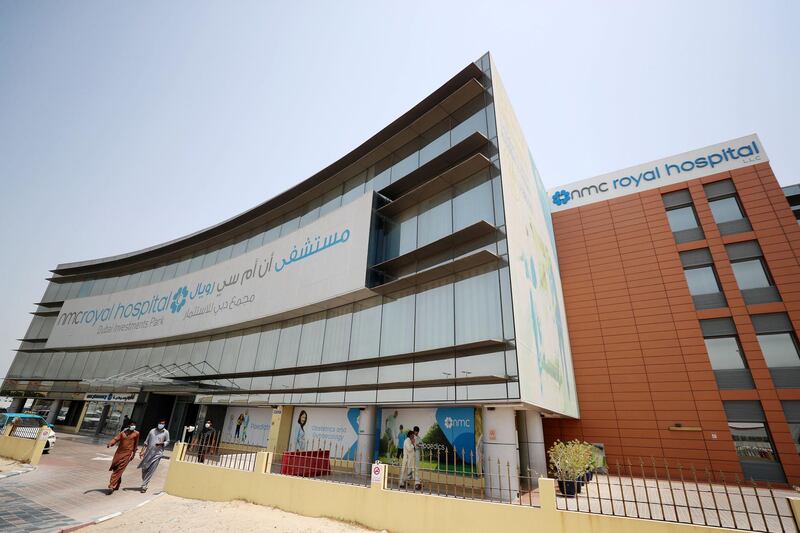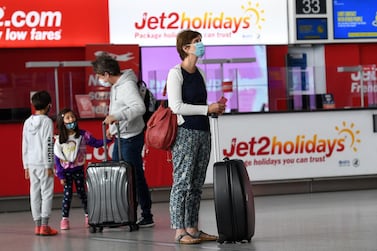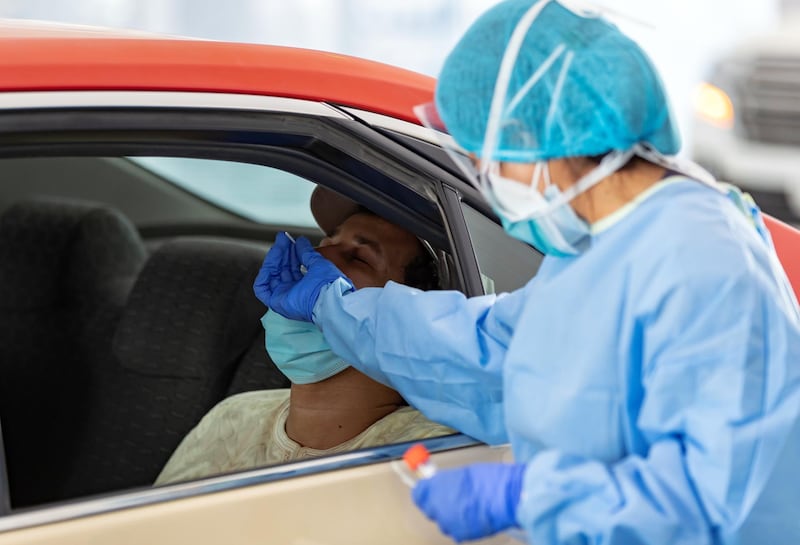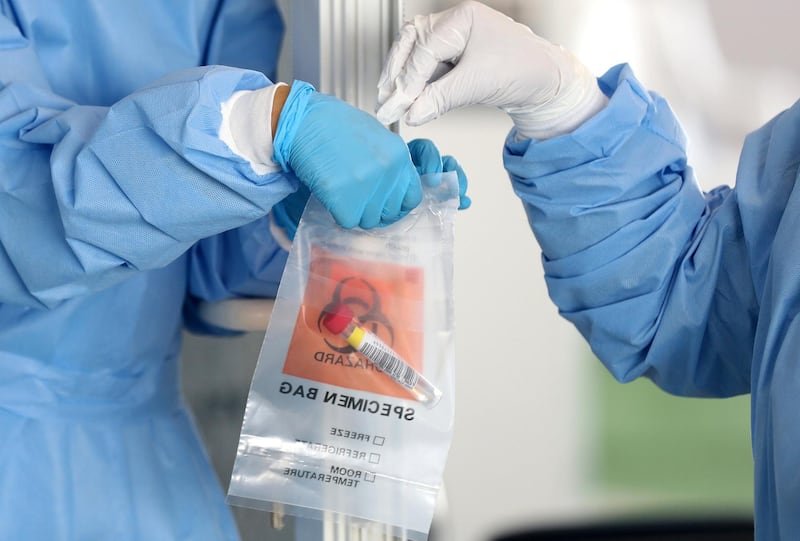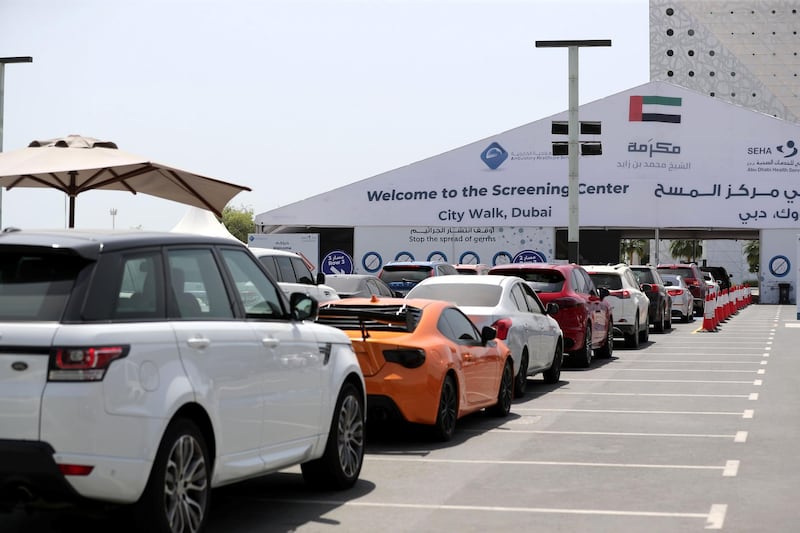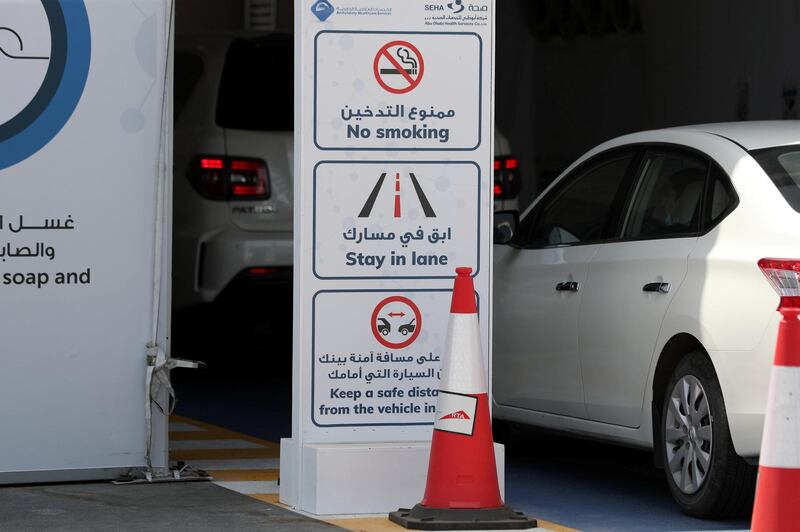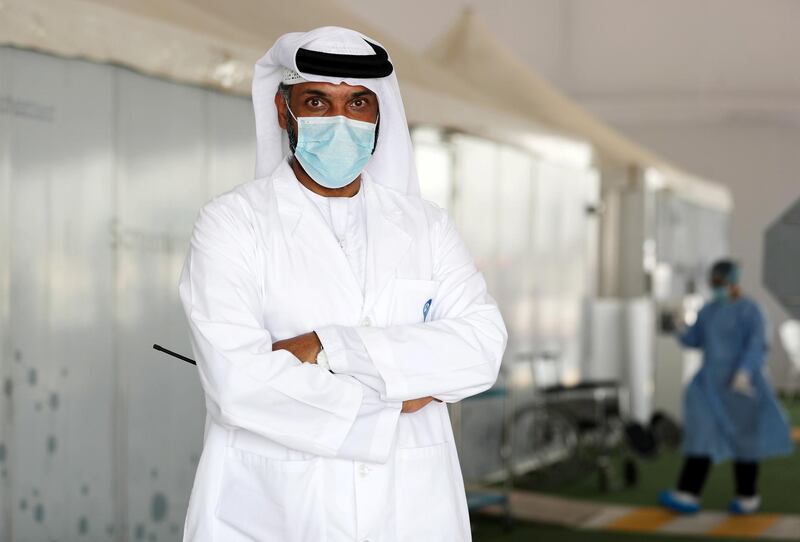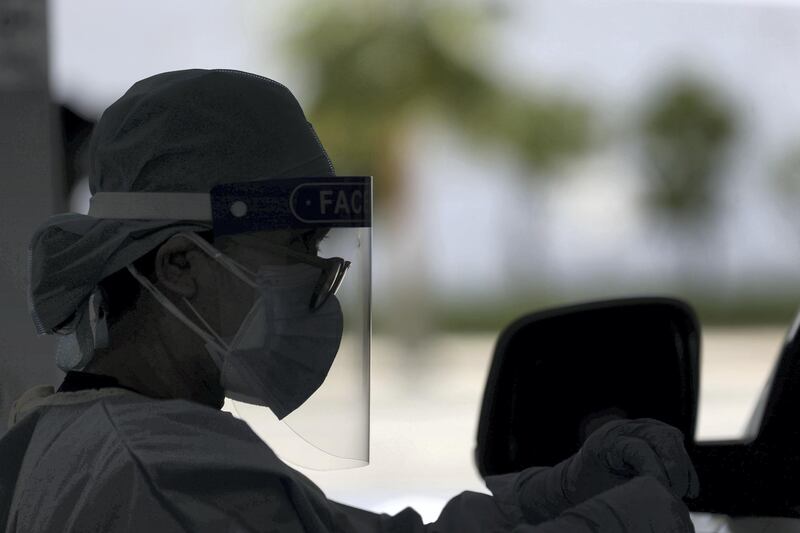Hospitals and clinics have seen a surge in demand for coronavirus tests as new rules mean travellers must get screened 48 hours before flying.
As schools finish for summer and flights abroad open up, testing centres said they had seen an influx in demand for PCR nasal swabs.
Doctors at NMC Royal Hospital in Dubai told The National they had seen a spike in walk-in patients.
Pulmonologist Dr Sukhant Bagdia - whose hospital had a dedicated floor for Covid-19 patients at the height of the outbreak - urged people to avoid against "all but essential travel".
The federal government has said residents must be able to show airport officials a negative test before they board a plane.
Dubai, which has its own crisis authority and immigration service, does not require departing residents to take a test, but some travellers said they were getting checked as a precaution.
“People do not want to be stopped at the airport with a positive test, so more patients are arriving for voluntary testing because they now want to travel,” said Dr Bagdia.
“If someone if travelling in two weeks, there is no point in getting a PCR test now.
“They should be screened 48 hours before they are due to travel to give them time to take precautions while waiting for results.”
Surge in Covid testing in UAE hospitals
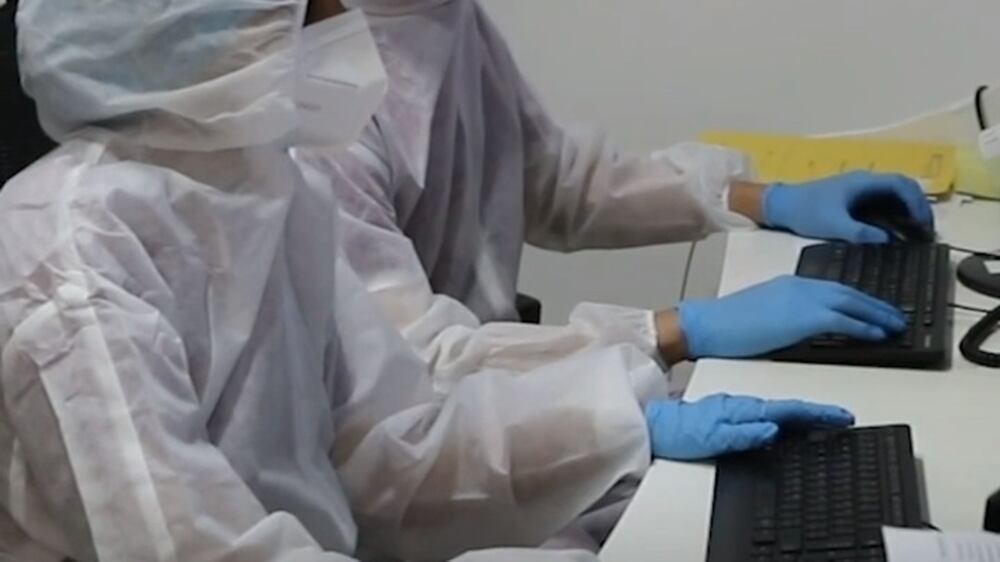
On Saturday, the UAE recorded 716 new cases of Covid-19 and three further deaths on Saturday.
More than 71,000 additional tests for the coronavirus have been carried out, the largest single daily number reported to date. Saturday's figures took the total number of cases to 50,857 and the death toll to 321.
The number of daily cases has risen from below 400 last week to more than 600 in recent days, though test numbers have risen too.
As restrictions on movement have eased across Europe, new cases of Covid-19 have crept up too.
Dr Bagdia said common sense must be applied to any upcoming trips, particularly for people with underlying health conditions.
“Travel should only be essential, as many countries are still in the peak phase - we should still be worried about this virus,” he said.
“If it is a leisure trip, people should reconsider if they really need to travel.
“Only then once they have a negative test should someone consider flying.”
Long queues at drive-though testing stations in Dubai were seen last week, after the authorities said anyone travelling into Abu Dhabi must prove they are clear of Covid-19.
At the peak of the crisis, NMC Royal had 50 patients occupying beds on a specific ground floor covid ward.
That area now occupied by walk-in patients asking for tests so they can return to work or fly home.
Dr Nihas Salins, a hospital administrator at NMC Royal, said operations are now dominated by routine screening, rather than patients with virus symptoms.
“A lot of people are getting screened now for the sake of travel in and out of the country,’ he said.
“Gradually, as we have observed across Dubai, the number of positive cases has reduced to the extent where we have no covid patients at our hospital.”
While the hospital is not conducting antibody tests, all PCR tests to detect active carriers are covered by health insurance, irrespective of the tier of cover.
Samples are evaluated at the government laboratory at Dubai’s Latifa Hospital, although NMC hopes to have its own facility operational within weeks to cope with anticipated demand.
“A good deal of our staff tested positive for the virus, both healthcare workers and administration staff,” said Dr Salins.
“Every single one recovered uneventfully and 75 per cent were asymptomatic and were only discovered via contact screening.
“In the last month or so, the symptoms in patients are much less severe and resemble normal flu. That is encouraging."
Lalit Mishra, 36, from Nepal, is a waiter for a company that provides catering services to many sectors. He needed a test to continue working in Abu Dhabi.
“We live in Al Quoz but work in hospitals across Abu Dhabi so to travel there we have been told we must first have a negative corona test,” he said.
“It is uncomfortable but something we know we have to do so we can keep working.
“My job is very important to me, so it is something I know I have to do.”

